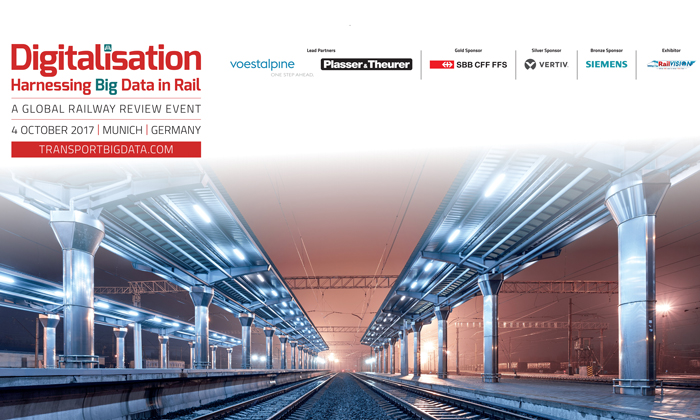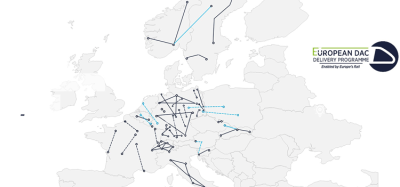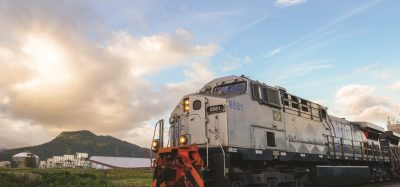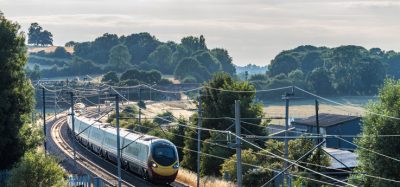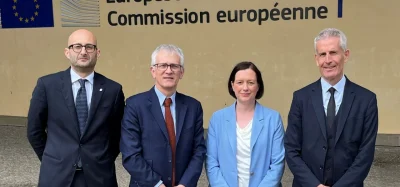Digitalisation: Harnessing Big Data in Rail Speaker’s Interview: Daniel Dotzl
Posted: 27 September 2017 | Global Railway Review | No comments yet
With Digitalisation: Harnessing Big Data in Rail soon taking place in Munich, we sit down with one of its speakers, Daniel Dotzl, Data Management Consulter, Data Compiler at Wiener Linien GmbH & Company KG to talk about the conference and find out what he will be speaking about.
What will your presentation at Digitalisation: Harnessing Big Data in Rail focus on and what can delegates expect to learn from what you have to say?
The presentation will mainly focus on how our infrastructure department deals with big data. The delegates can look forward to hearing some useful tips in using open source software to aggregate, process and visualise data. Usually this is the part of the presentation where the expert audience grab their mobile phones as fast as possible to take photos of the slides. A further highlight will be the Live Demo at the end of the presentation where we will give an insight into our open database and the huge amount of rail measurement data in it.
What would you say has been the biggest step forward in the field of big data for your organisation in the last five years?
There are some measures but in my opinion one of the most powerful steps was the introduction and usage of open source software plus the massive spirit of research and innovation by some of our employees. Therefore a change of culture was needed, with employees having to have enthusiasm and be open-minded to this. Furthermore we rely on software which has been long-standing for years and has a large community of users.
In your opinion, which rail organisation(s) do you think are doing the best work to keep abreast of big data developments?
Unfortunately (except at events like Digitalisation: Harnessing Big Data in Rail) there is too little insight in general of how railway organisations deal with their data in daily business. I am sure that there are many organisations which deserve to get credit for their work. One organisation that really impressed me was JR East. They use some Track Monitoring Devices which are probably the source of enormous amounts of data.
However, it is not all about rail measurement data when we talk about big data in railway organisations. In the near future, railway organisations will also have to focus on the big data issue when they consider autonomous vehicles, the usage of sensors and IoT, drones for building inspections or the utilisation of anonymous data generated by mobile devices. In general I assume that all the experts in the digitalisation labs of these organisations know the key principles of how to work with big data very well to benefit from the outcome. Otherwise they would not work with it.
What challenges do you think the railway industry will face in the future concerning how big data is utilised?
In my opinion it is relatively clear that we need to expand the IT infrastructure – in particular the telecommunication networks. Full WiFi access and good 5G coverage. These are the main requirements to make the utilisation of big data more comfortable and less complicated, and will shorten the process of data transfer.
Looking at the conference’s programme, who among your fellow speakers are you most interested to hear from and why?
This year’s conference seems to be really diverse – so there are speakers from North (UK) to South (India), there are speakers from the railway industry as well as transport operators. But to be honest I am most interested in the presentations of the large railway companies (DB, SNCF, SBB and Indian Railways). Such large-sized companies do usually have the necessity and the resources to implement powerful approaches in how to deal with big data. I am looking forward to an advanced level of presentations!
Biography
Daniel Dötzl studied Intelligent Transport Systems plus Industrial Engineering and Management. After graduating he proceeded to work at Wiener Linien GmbH & Co KG in the area of digitalisation. There he teams up with specialists in software engineering, coding, math and statistics to develop an open source database for technical assets.
Additionally he lectures Public Transport at the University of Applied Sciences Technikum Wien. In 2011 Daniel and his colleagues received the ‘Zukunftspreis’ by the city of Vienna in the category of ‘Newcomer & Start-Ups’ for their innovative idea to make electrical vehicles audible at little cost.
Make sure you catch Daniel Dotzl’s talk: ‘How Wiener Linien, as a public transport provider, is facing the challenges of big data’ at Digitalisation: Harnessing Big Data in Rail at 4.30pm at the Hilton Munich Airport hotel in Germany on 4 October 2017.



